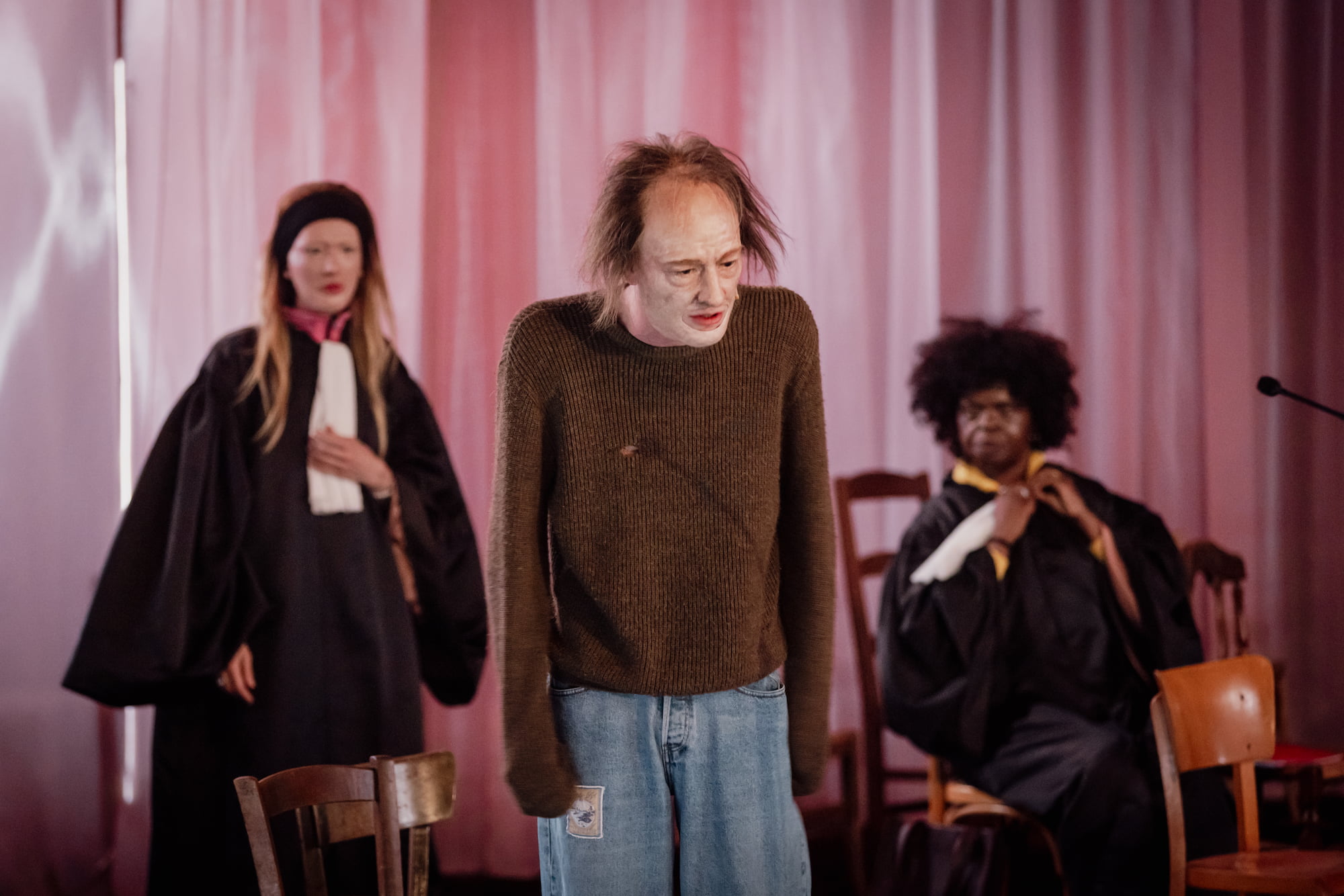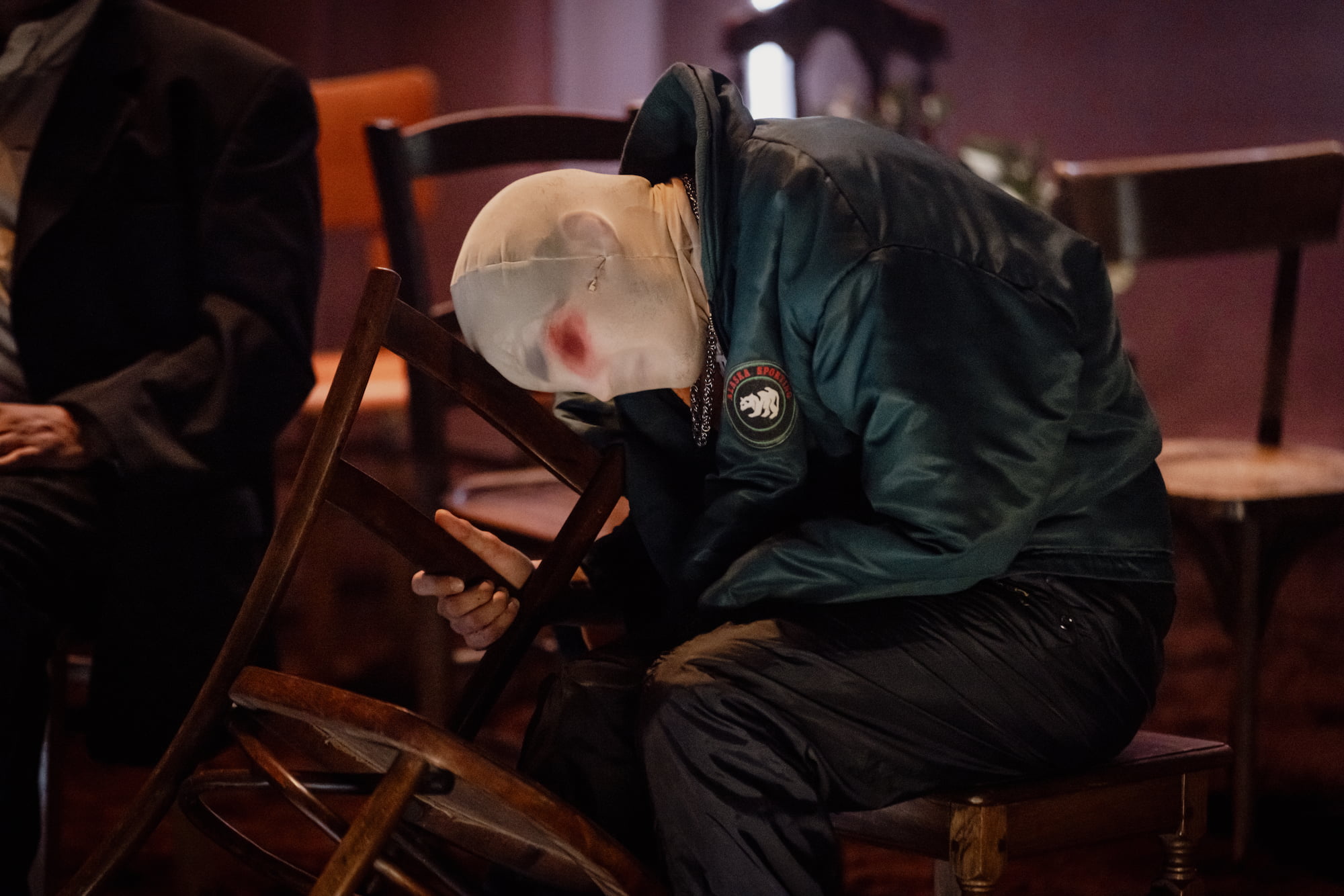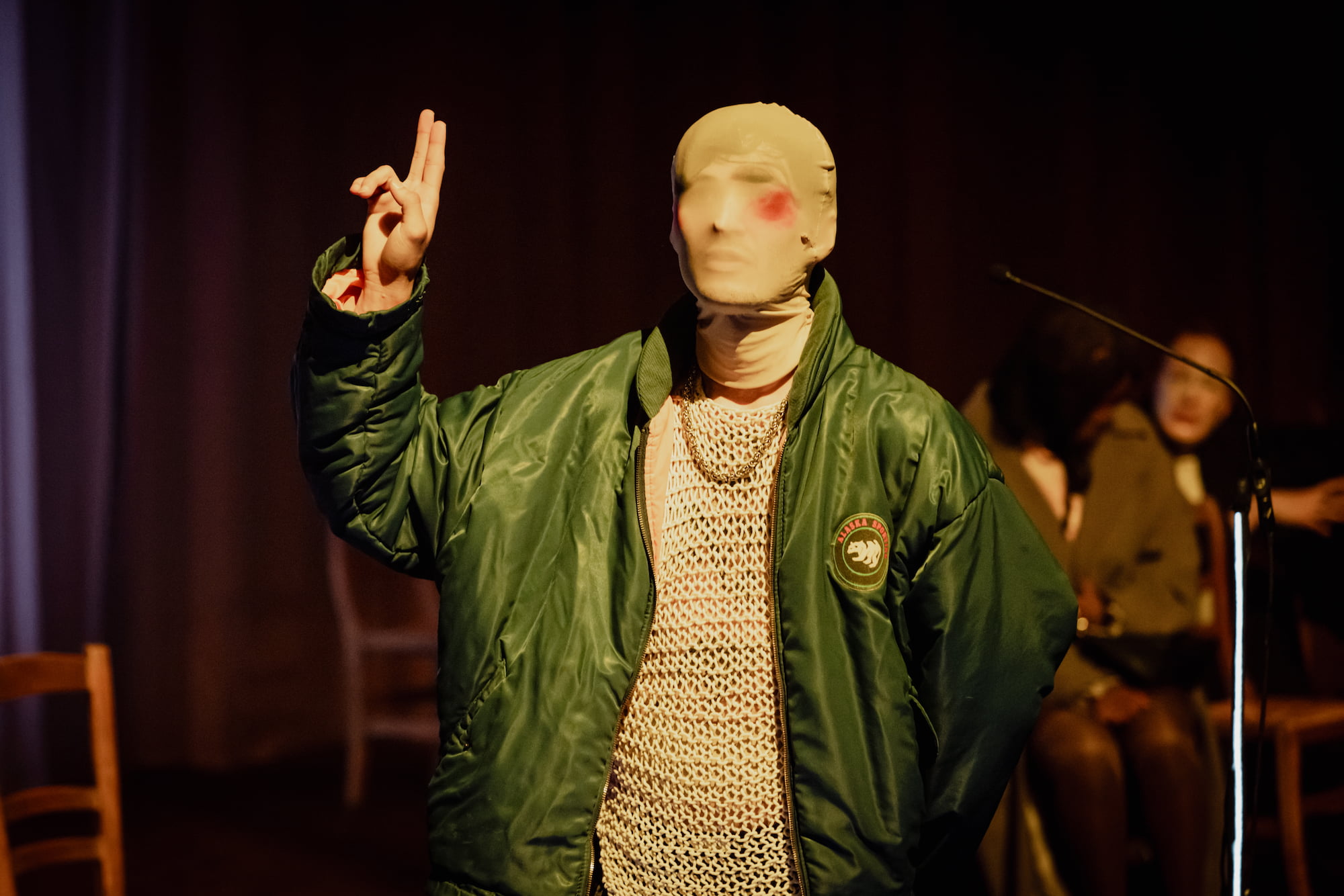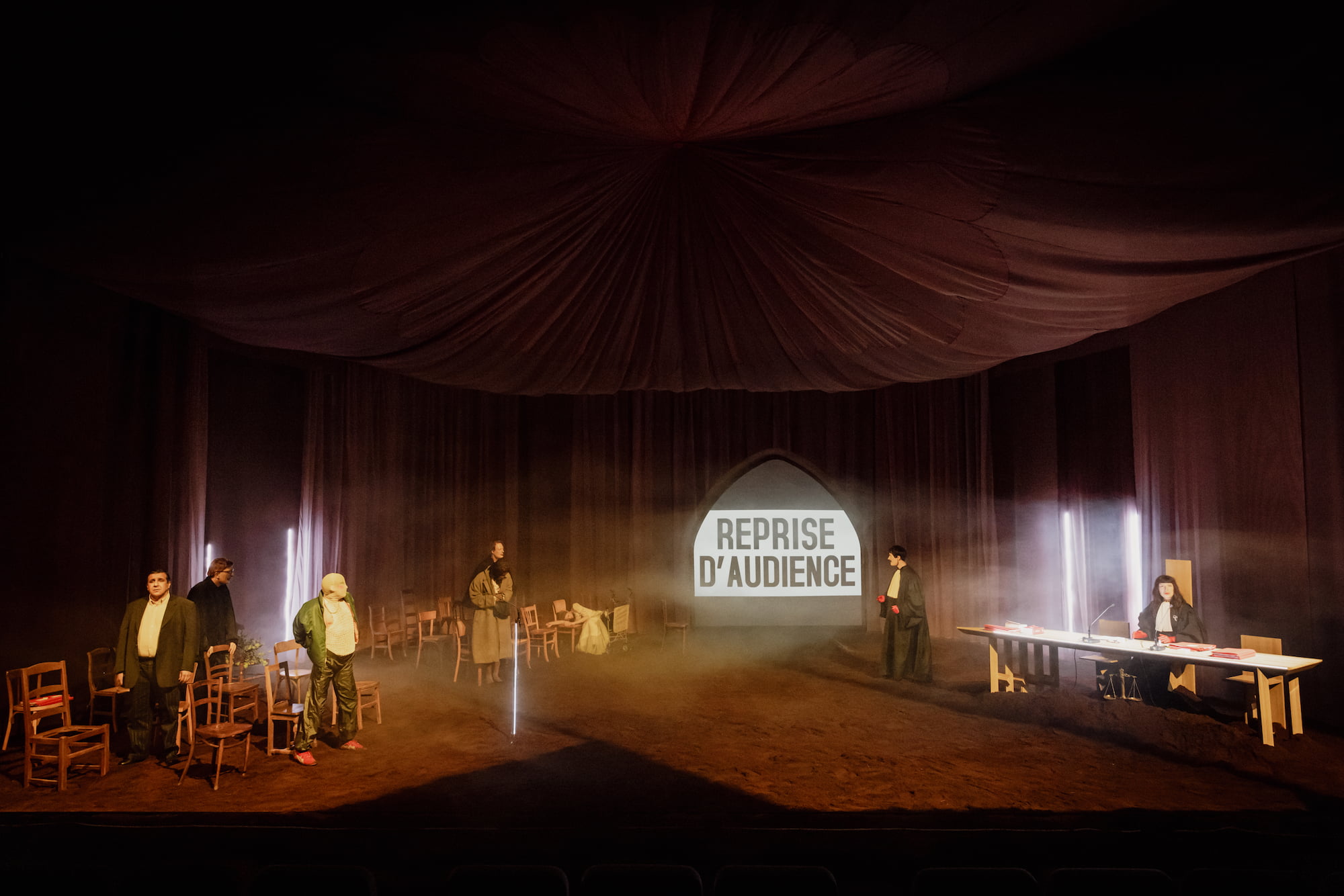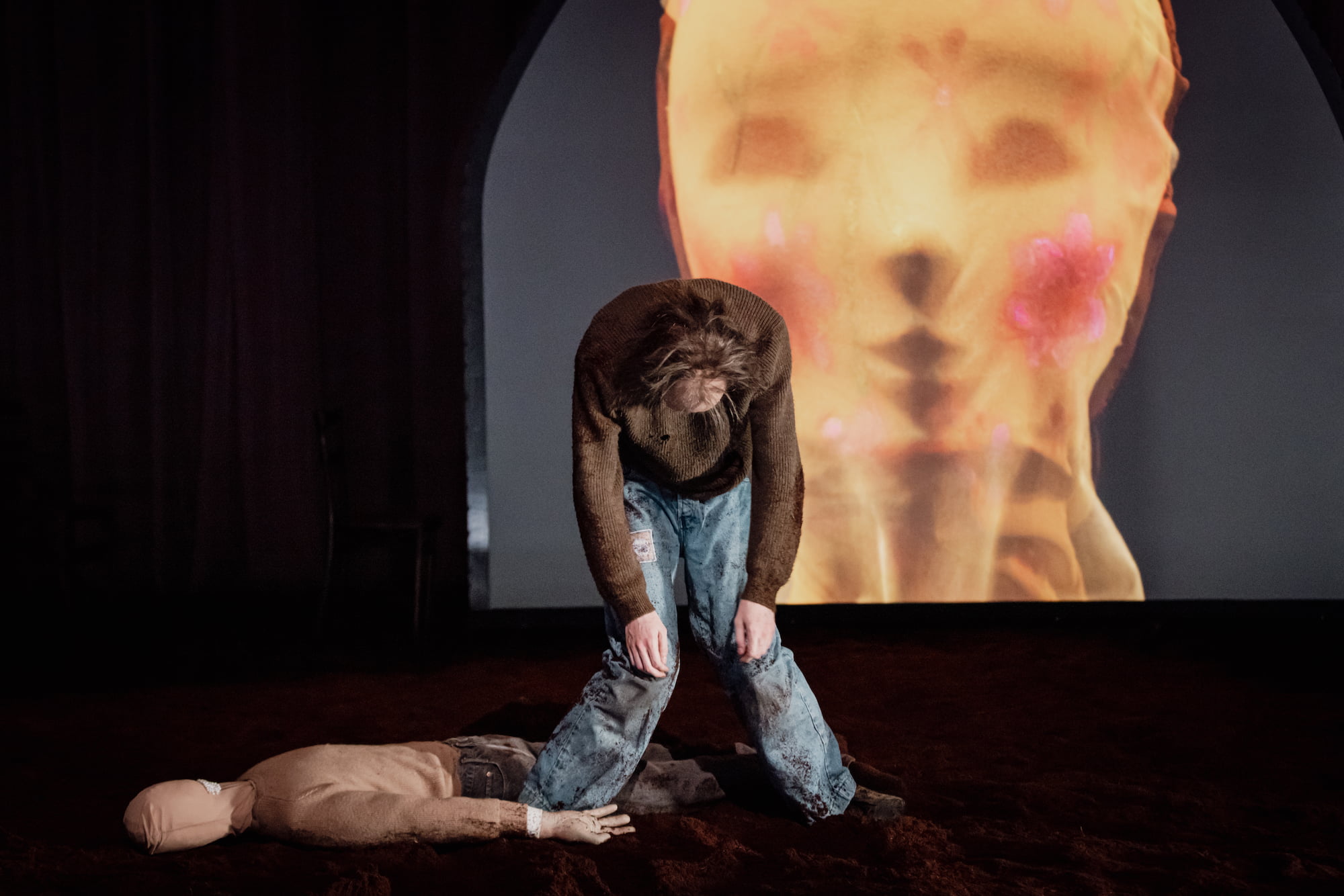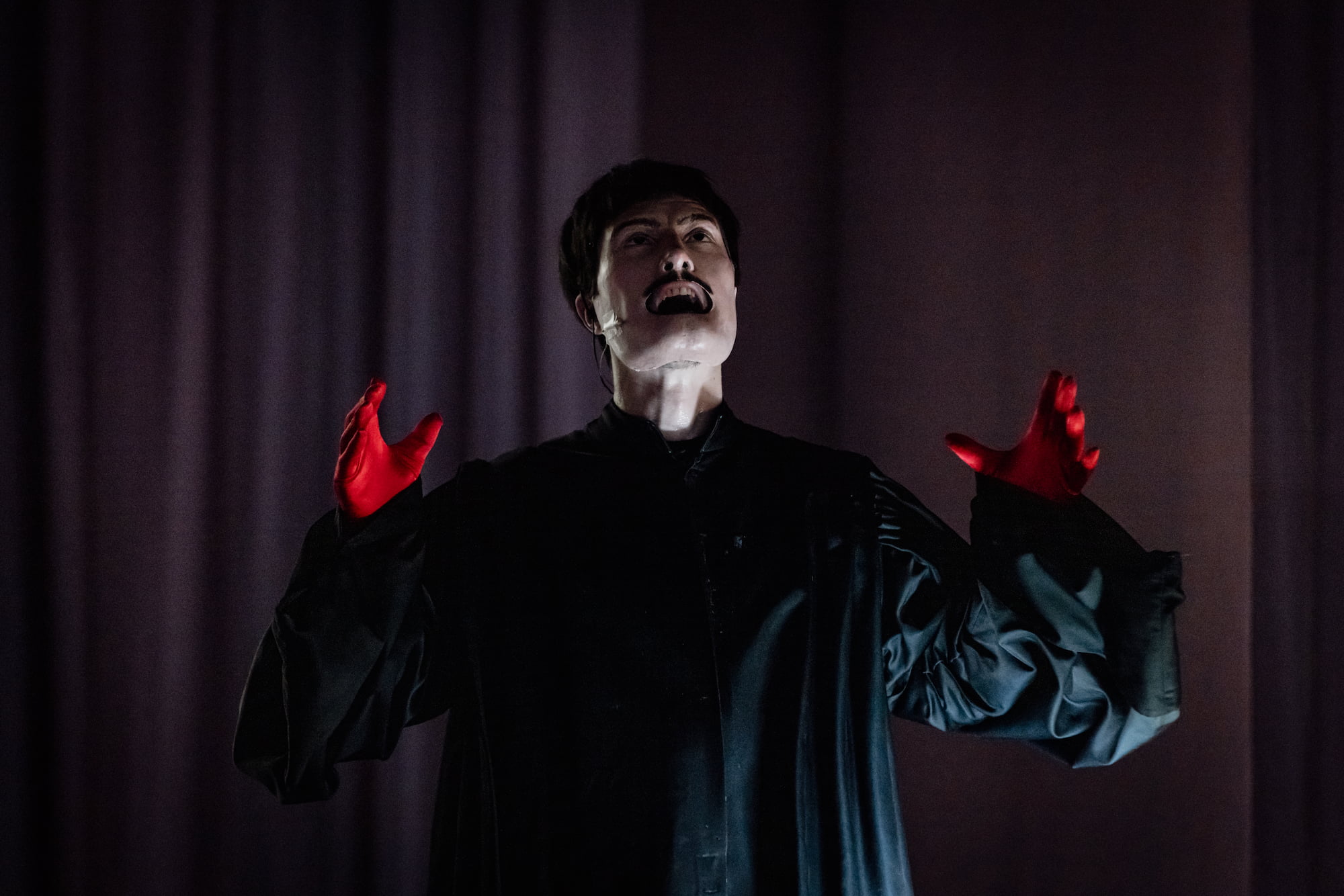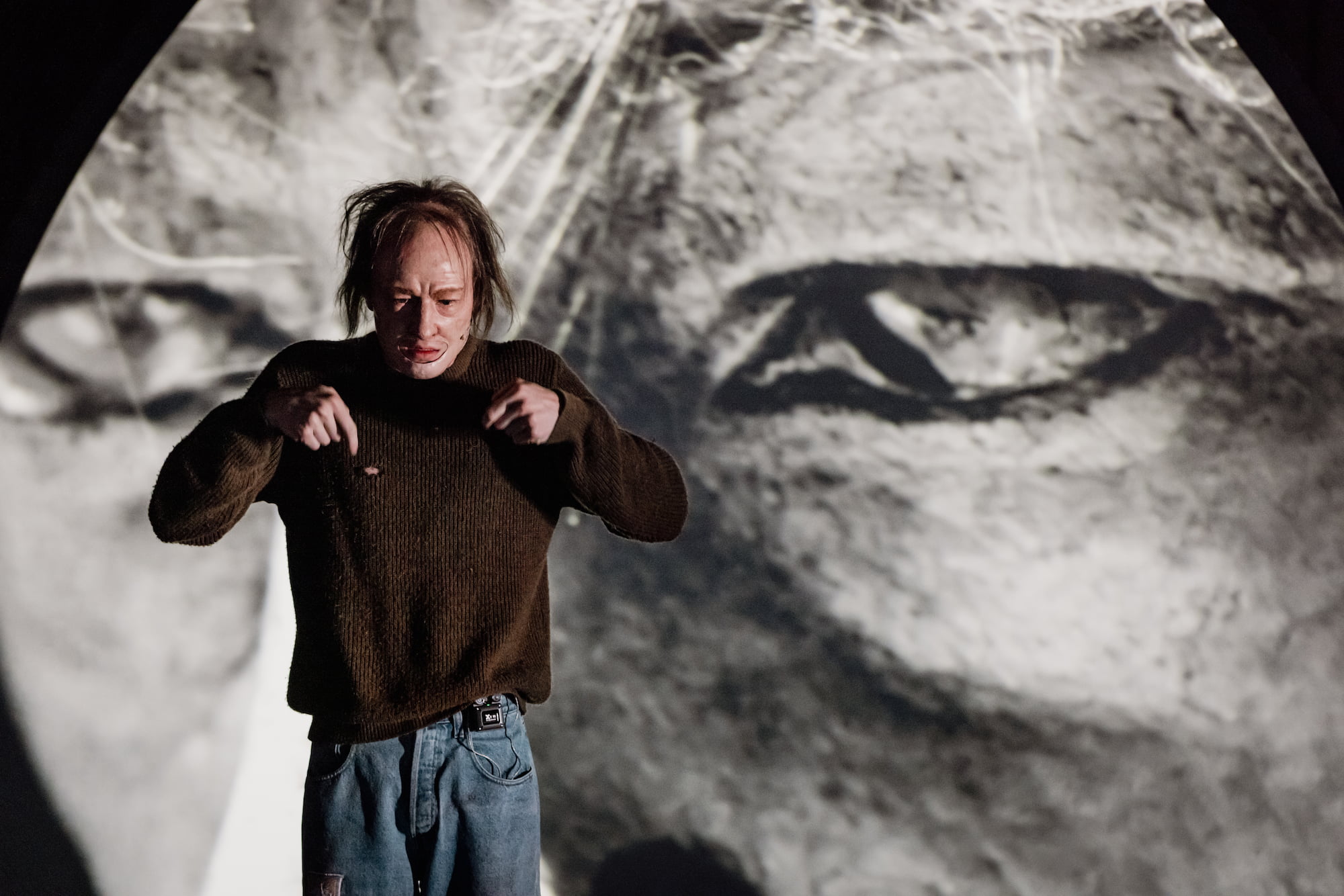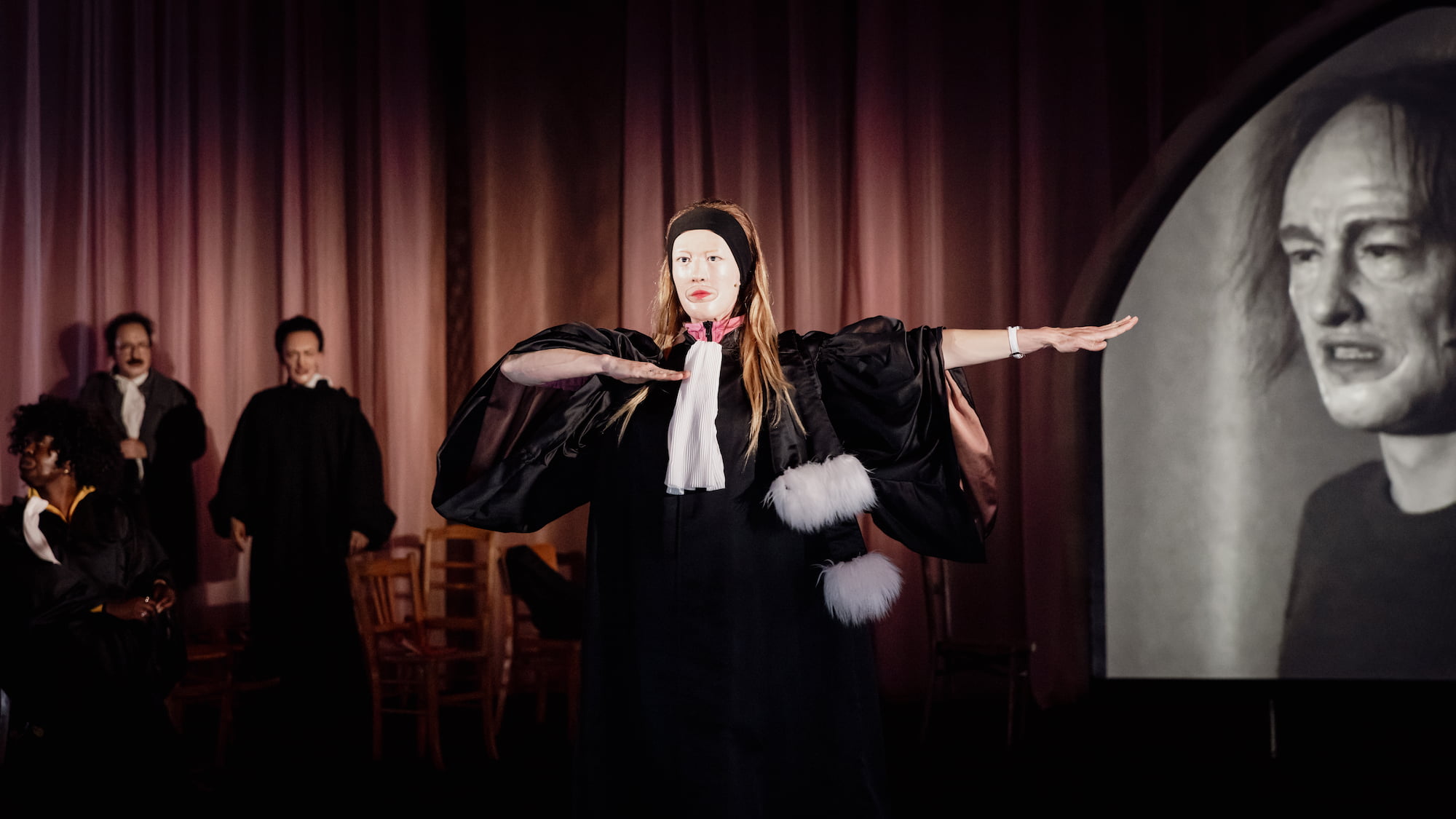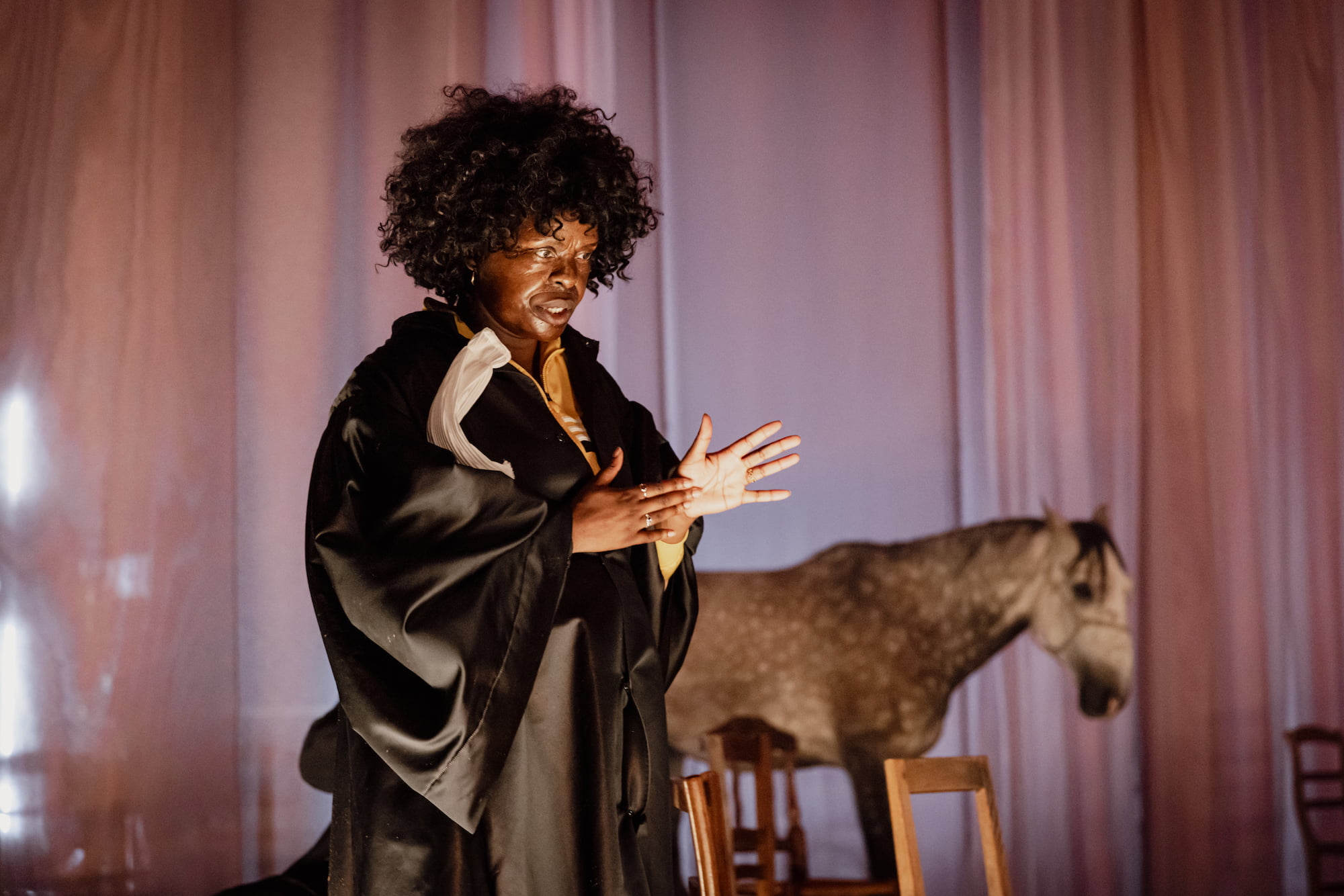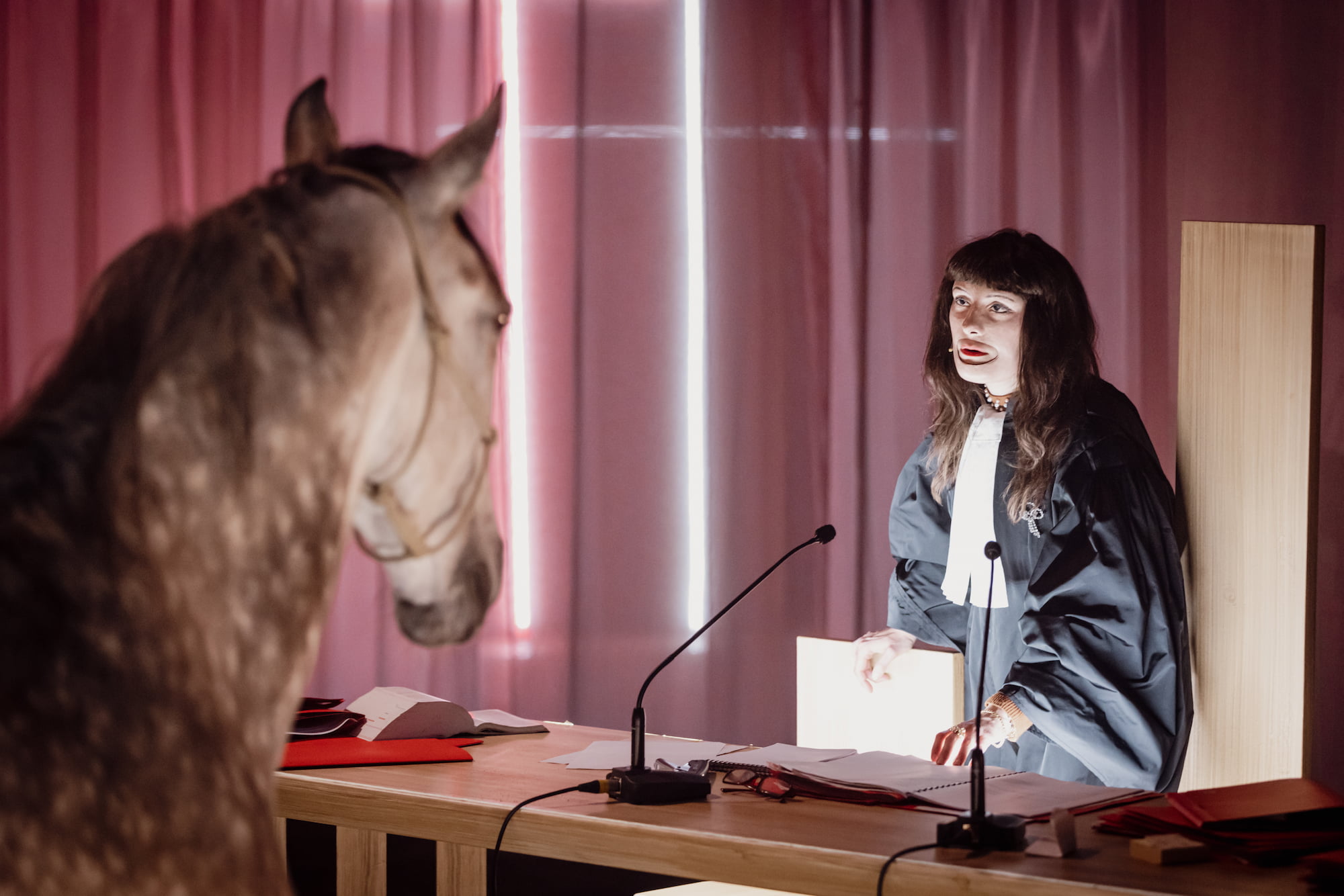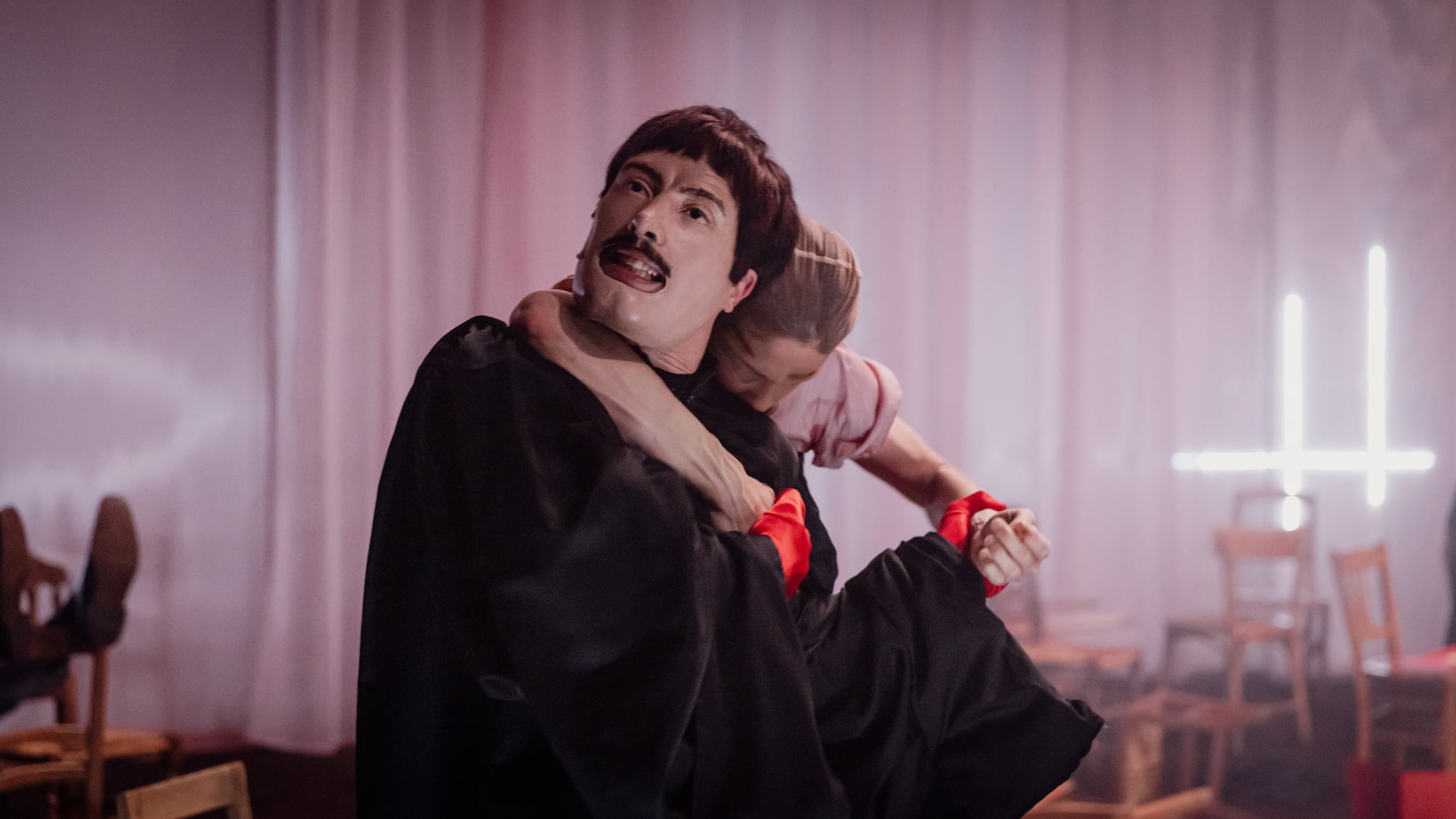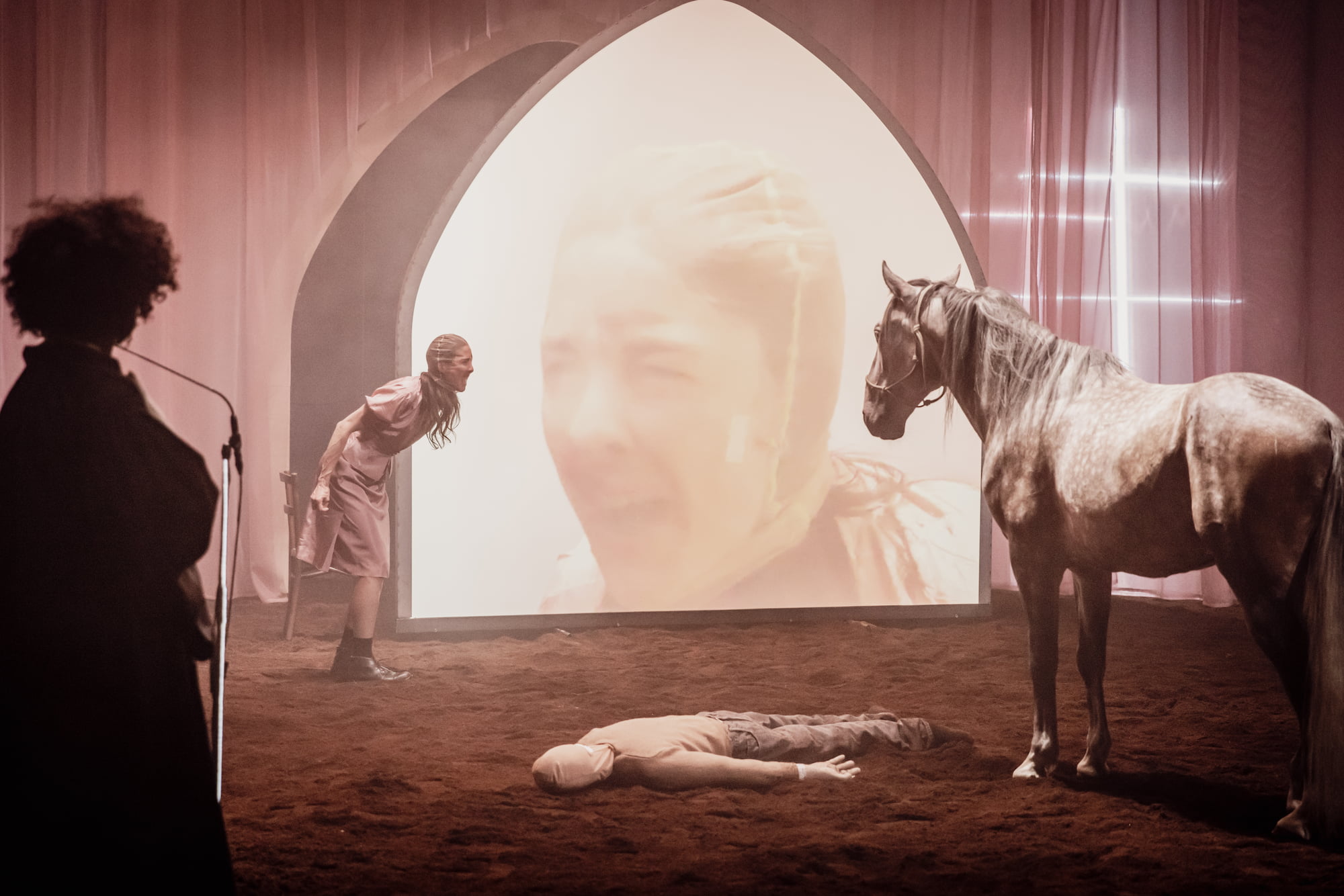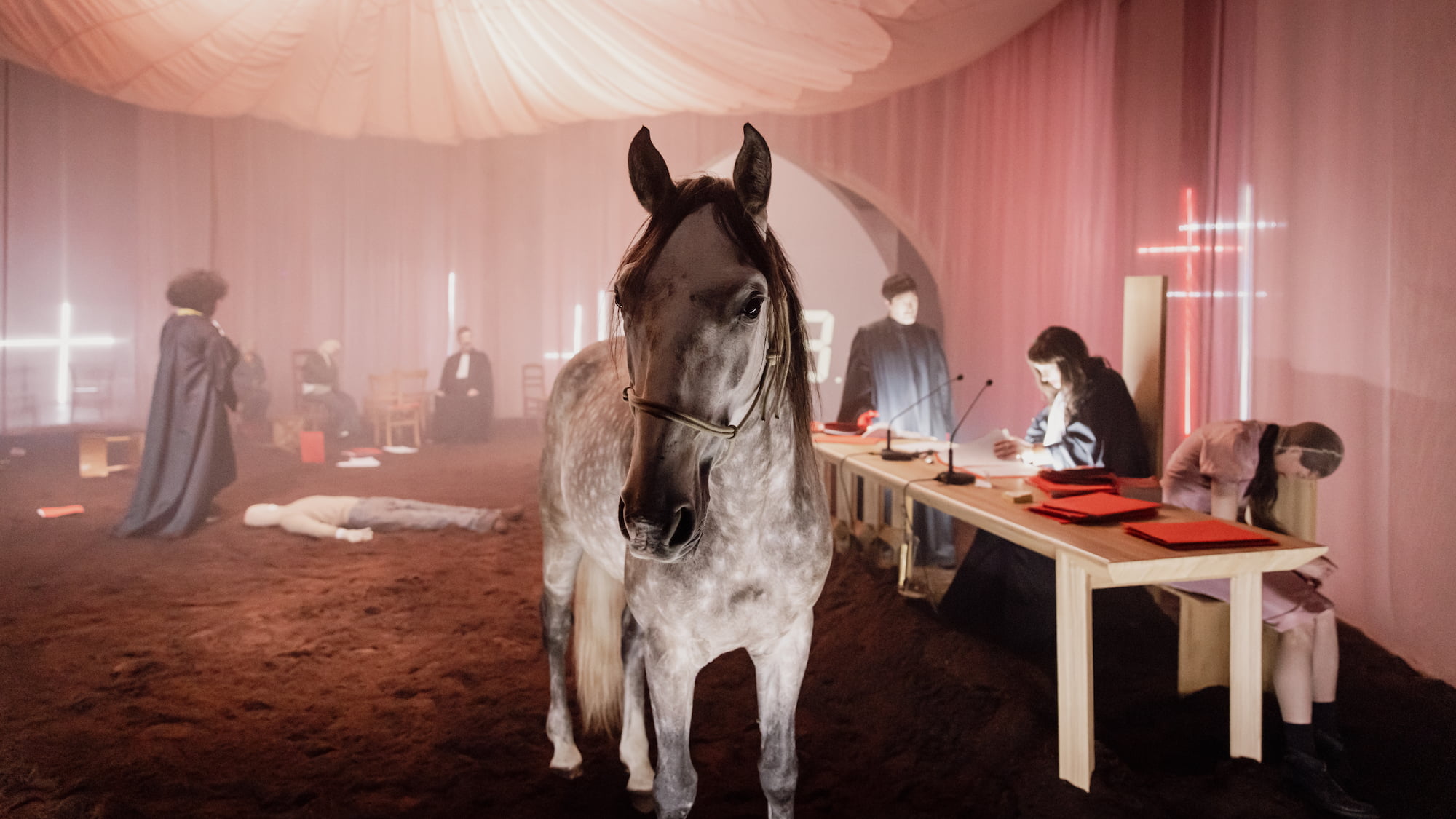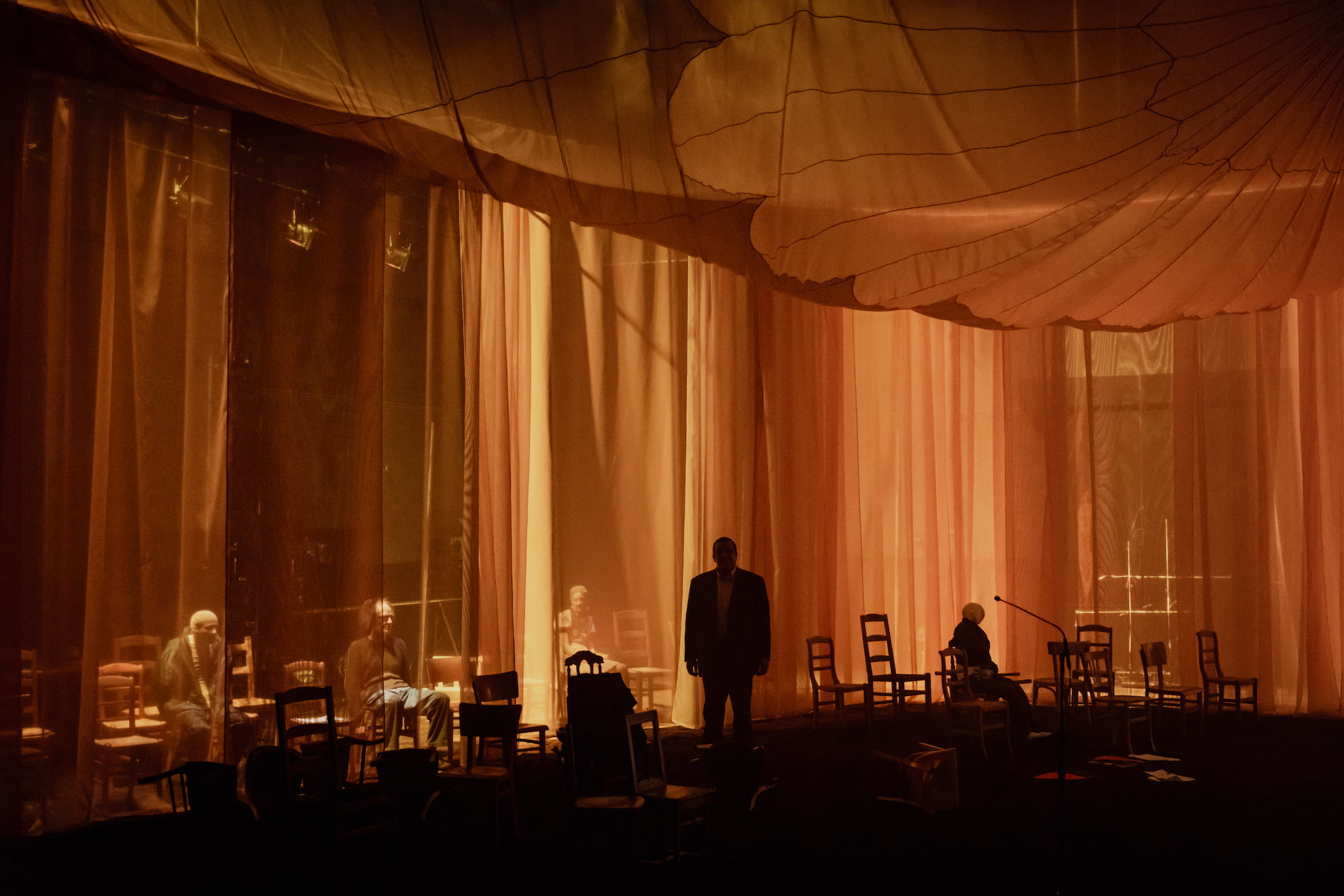with Khallaf Baraho, Jeanne Favre, Felipe Fonseca Nobre, Jisca Kalvanda, Antonin Meyer-Esquerré, Mathieu Perotto, Victoria Quesnel, Eric Verdin, and the horse Oasis
Who is punished and why? Where does the logic of punishment come from? Why does the judicial system struggle to provide citizens with a true sense of justice? After a long time spent immersed in the heart of the contemporary criminal justice system, Lorraine de Sagazan and Guillaume Poix built a fragmented narrative whose pieces fit together and interact under a marquee created to resemble a makeshift court. In this counter-space where all different genres mingle together, the performance attempts to upend certain facts and grapple with tipping points that go beyond simply good and evil. The figure of Leviathan, a vast philosophical and literary heritage, compels us to confront the dilemma of violence, its legitimate practice and its regulation by law, and asks us, as it has since the Bible, this same crucial question: who is the monster?
Cast
dramaturgy Agathe Charnet, Julien Vella
set design Anouk Maugein
in collaboration with Valentine Lê
lighting Claire Gondrexon in collaboration with Amandine Robert
sound Lucas Lelièvre in collaboration with Camille Vitté
incidental music Pierre-Yves Macé
choreography Anna Chirescu
video, framing Jérémie Bernaert
costume design Anna Carraud assisted by Marnie Langlois and Mirabelle Perot
masks Loïc Nebreda
wigs Mityl Brimeur
stage direction cheval Thomas Chaussebourg
vocal work Juliette de Massy
assistant director Antoine Hirel
production La Brèche, La Comédie - centre dramatique national Saint-Étienne
coproduction Odéon-Théâtre de l'Europe, Théâtre Gérard Philipe - centre dramatique national de Saint-Denis, ThéâtredelaCité - centre dramatique national Toulouse Occitanie, Comédie de Reims - centre dramatique national, Comédie de Béthune, Académie de France à Rome - Villa Médicis, Théâtre Dijon-Bourgogne - centre dramatique national, Festival d'Avignon, La Passerelle - scène nationale de Saint-Brieuc, L'Azimut Antony - Châtenay-Malabry, Théâtre du Beauvaisis - scène nationale, Théâtre national de Bretagne - Rennes
with the artistic support of the Jeune théâtre national
action supported by the Île-de-France region
the company is subsidised by the ministère de la culture - Île-de-France
with the support of the Cercle de l'Odéon
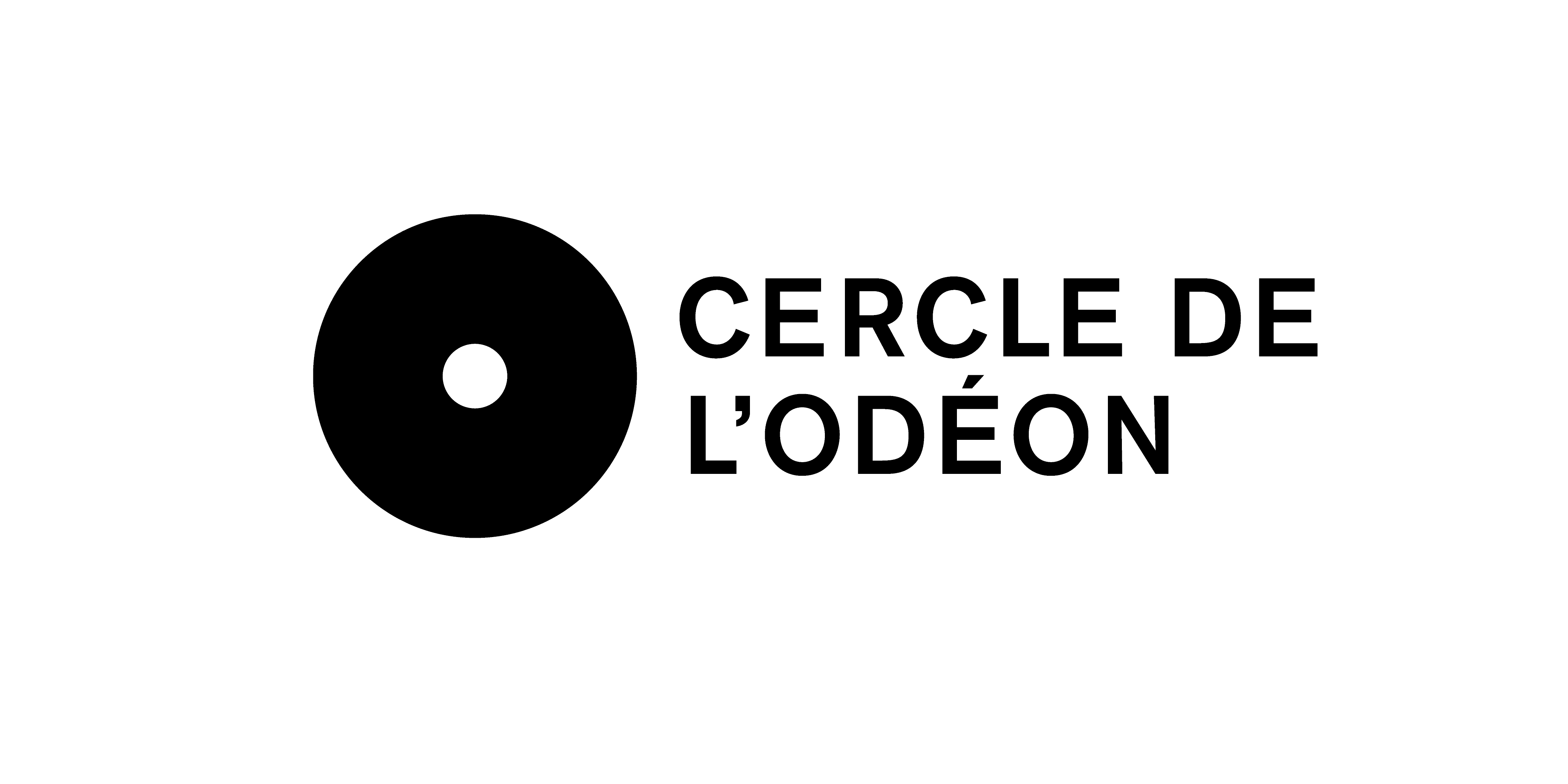
creation at the Festival d'Avignon 2024
Biography of Lorraine de Sagazan
Lorraine de Sagazan studied philosophy and trained as an actress from 2006 to 2010. At the Studio-Théâtre d'Asnières - Centre de Formation des Apprentis comédiens (now the ESCA), she learned to produce collectively. It was here that she met the men and women who are still her acting partners and peers today. She decided to turn to directing in 2015. At a time when there was only one directing course at the École nationale du Théâtre de Strasbourg, Lorraine de Sagazan asked those who inspired her to follow them for the time of a creation: Thomas Ostermeier, Marius von Mayenburg, Falk Richter and Romeo Castellucci.
Following the presentation at La Loge - Paris of Ceci n'est pas un rêve (2014), her first collective work with four Studio-Théâtre acolytes, she was invited to take part in the Fragments d'Été Festival in Paris, for which she chose to work on an adaptation of Lars Norén's Démons. The company La Brèche was founded on this occasion, in 2015. This manifesto piece reveals her focus on both the author's gesture and the status of the spectator, his place, his gaze, his state. It marks the start of what can be seen as a first cycle in her career, devoted to adapting texts from the classical and contemporary repertoires, and to the way in which “the fiction of a work confronts reality”.
In 2016, Lorraine de Sagazan signed the second part of this cycle with an adaptation of Henrik Ibsen's A Doll's House, accentuating the search for what, today, reactivates the shock of past masterpieces. In 2017, she directed the winning text of the Prix RFI Théâtre 2017: La Poupée Barbue by Édouard Elvis Bvouma, the first show for young audiences to tour eight African countries. In 2018, commissioned by the Conseil Général du 93, she created Les Règles du jeu by Yann Verburgh, a second project aimed at young people. That same year, in Vienna, she staged an adaptation of Anton Chekhov's Uncle Vanya with Austrian actors. She closes her first cycle in 2019 with L'Absence de père, based on Anton Chekhov's Platonov, which she co-wrote with playwright Guillaume Poix.
Practical Information
Duration: 1 hrs. 45 min.
Tuesday to Saturday at 8pm, Sunday at 3pm
no performances on Mondays and Sundays 11 and 18 May
in French with English surtitles on Fridays 2, 9, 16 and 23 May
Around the performance
Previews on 29 and 30 April
Happy Thursday on Thursday 8, 15, 22
Meeting with Lorraine de Sagazan
and the L'Envers de Paris “Theater and psychoanalysis” collective
Friday May 16 after the performance (5:30pm) - Berthier 17e
meeting in French
Find out more


